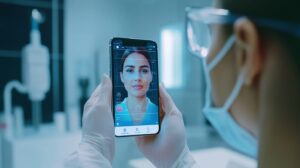
Why Top Companies Are Betting Big on Job Simulations for Hiring
An interview with Tom Brunskill, Co-Founder at Forage
Q: With AI taking over entry-level tasks and many companies wanting candidates with work experience right out of college, what specific skills or experiences can students gain through job simulations that will help them stand out to potential employers?
Job simulations offer students not only the experience of working on actual tasks they’d do in the workforce but also place them in the context of a real-world work environment.
For example, if you do a software engineering job simulation at a company, you're not just building the skills you need to be an entry-level software engineer. You're also learning how to apply those skills in a work environment.
You understand the kinds of teams you'll work on, the goals of different projects, and how to communicate your impact and results. Additionally, you build the soft skills needed to succeed in the workplace, such as communication, teamwork, critical thinking, and problem-solving.
Candidates who complete job simulations stand out because they develop these skills within a real-world work simulation. They gain both the skillset and the context to understand how to perform a job and what it entails, making them appear as qualified, dedicated, and experienced candidates during the hiring process.
Q: Why are companies investing time and effort to create job simulations? What are they hoping to accomplish by doing that?
Companies are looking for not only qualified candidates but also those who are truly interested and excited about the work the company is doing. They don’t want thousands of low-intent candidates in their pipeline!
By creating job simulations, companies can demystify the different careers at their organizations for students, giving them a sense of the projects they’d work on, who they’d collaborate with, and the company culture.
Students then enter the job search process not only more skilled and ready to take on workplace tasks but also genuinely interested in working for the company and contributing to its culture and impact.
Q: How is the hiring process changing at companies that have created job simulations? How are these companies using job simulations to decide whether or not to hire a candidate?
Students who complete a job simulation are 3.3x more likely to land a role because many employers actively seek them out in the hiring process. Even when an employer isn't explicitly looking for a candidate, our simulations equip students with the knowledge and confidence to excel in the recruitment process.
When a company knows that a student has completed one of their job simulations, it's a positive sign that the candidate is dedicated to advancing their skillset and has a genuine interest in the company. It makes those students stand out.
Q: What critical skills or qualities are employers looking for in candidates today that might be different from what was expected 20-30 years ago?
This might be a controversial view, but I don’t think the attributes and skills employers look for in candidates will change dramatically. The context in which you apply those skills will change, especially with technological advancements, but the fundamental desirable characteristics will stay the same. We all know what these are.
The ability to:
- communicate effectively
- work in a team
- solve problems
- know when to take initiative versus relying on someone else’s experience
- demonstrate genuine curiosity for one’s craft
I’m no historian, but I bet these were the same attributes that allowed high-performing teams at NASA to put man on the moon, the team that discovered penicillin, and the construction of the Golden Gate Bridge in my current city here in San Francisco.
Q: How can young people today prepare themselves for the future of work? Are there specific skills, experiences, or resources you recommend they focus on?
The future of work is ever-changing, which is why one of the best skills for young people today is adaptability. Adaptability means being able to think critically, be resilient, and act effectively when things are changing.
This generation is already so adaptable — think of how their learning was interrupted by the COVID-19 pandemic. They can apply these skills to the workplace by working on their problem-solving abilities, practicing empathy, and using a growth mindset.
We have no idea how the world of work might change in the next five, 10, or 20 years. But by being someone who's not afraid to change the status quo, who is not only okay with change but can easily adjust and do something better — that's what employers are going to value.









